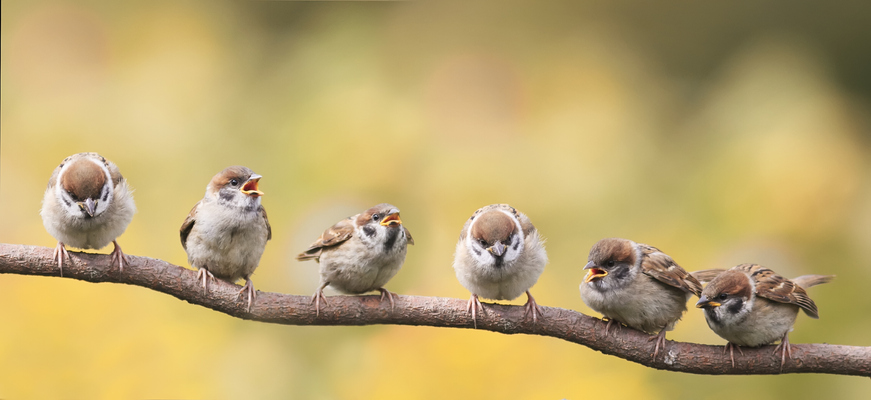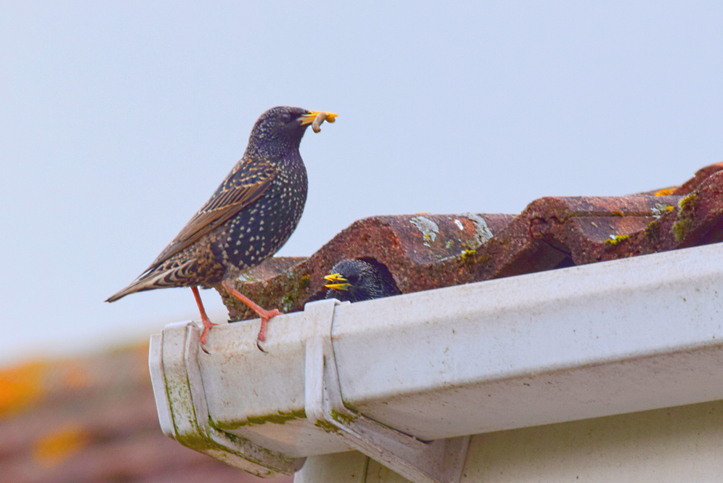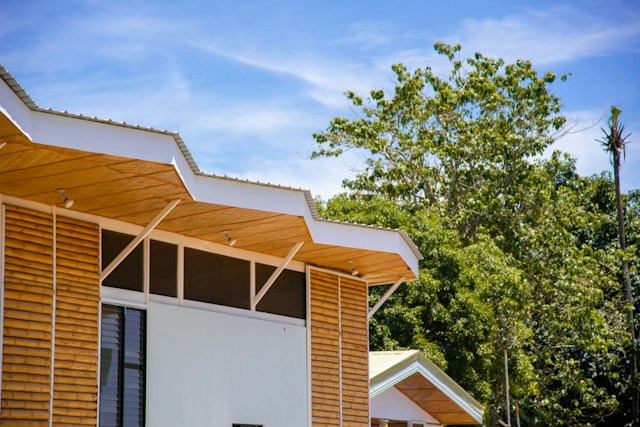Birds are beautiful to watch in the wild and help keep our ecosystem balanced by eating bugs and snakes, among other things, but they can also be damaging when they nest in your home. Bird-proofing is how we gently and ethically keep birds away from our homes and areas on our property where they can cause damage, whereas bird and pigeons removal refers to methods for getting birds out of your home if they’ve nested there.
This article will outline how you can prevent birds from nesting in your home in the first place and what your options are for gently removing them without causing harm if they’re already there. Read on to learn how to evict your avian houseguests kindly.
Why You Don’t Want Birds In Your Home
We love birds, but there are some significant reasons that you’ll want to make sure they stay away from your home.
- They’re noisy! We think of birds like roosters crowing in the morning, but in reality, birds, especially chicks, can be almost constantly noisy.
- They cause property damage, specifically to your sidewalks (their urine contains uric acid, which corrodes concrete), your house’s exterior color, your prized tomatoes in the garden, or even your solar panel.
- They can pose health risks. Like mice, some bird species carry diseases that are transmissible to humans.
- They make a lot of mess. Their nests are sweet to look at, and we admire their craftsmanship, but they can easily clog drain pipes and gutters in your home.
- Their nests can be safety hazards. Dryer vents, gutters, chimneys, pipe fittings, and any little openings leading into your attic are prime real estate for birds to build nests, but they can cause fires in your home, which is why it’s important to discourage that behavior.
Where Do Birds Build Their Nests?

Birds will build their nest wherever it is comfortable and appears to be predator-free. If you have a bird’s nest that is in your home, you’ll likely discover it in one of the following places:
- In your air vents
- In the attic
- In any holes on the exterior of your home
- In your garage or shed
- In your soffits, eavestroughs, or downspouts
- In your roof vents
- In your wall vents
- In dryer vents
- In your chimney
The last thing you want is to call an electrician or HVAC specialist because debris or blockages in your vents are causing damage to your electrical or plumbing work, so taking some prevention steps is key.
The Dangers of Keeping Birds in Your Home
The following are some of the major dangers of allowing birds to nest in your home, as well as why it’s preferable to evict them and return them to their natural habitat:
They make a tremendous mess anywhere they nest, such as in air vents, chimneys, and eavestroughs.
They can carry ectoparasites such as fleas, lice, mites, and ticks to humans and pets.
They bring unwanted and potentially dangerous debris into your homes, such as sticks, grass, and other odds and ends that make great material for their nests but dry out and turn into messiness in your home, potentially being a safety hazard.
They can cause a fire hazard due to the flammability of the debris they bring inside.
Their long-term presence creates dangerous mold and fungus. Bird droppings spread various diseases that can be fatal to humans and pets.
Which Diseases Can Be Transmitted By Bird Droppings To Humans or Pets?
Most people are aware of the need to keep mice from their homes due to the mess and danger of getting sick from their droppings, and birds are much the same. There is a lengthy list of bird-borne illnesses that are transmissible to humans, here are just a few:
- Histoplasmosis
- Mites and ticks (while these aren’t diseases, they carry them)
- Bird fancier’s lung
- Avian Tuberculosis
- Lyme disease
- Avian pox
- Lymphoproliferative disease
- Fowlpox
- Salmonella
- Trichomoniasis
- Encephalitis
Bird Droppings Ruin A Car’s Paint

Bird poop is terrible for your car’s paint for two reasons. First, it often contains chemicals that can etch or bleach your paint. Second, birds aren’t known for their picky eating habits and continually ingest sand, shell fragments, and pebbles, which come out in their droppings, land on your car, and then scratch your paint if you scrub it to get it off.
The best thing you can do is dab the spot with hot water and let it sit until the site soaks through, then gently dab until it’s clean.
Birds Can Ruin The Vegetables & Fruit You’re Growing In Your Garden
Birds can be very helpful in pollinating plants, picking up seeds and pollen, and spreading them around, but they can also negatively affect your garden. Bird poop has caustic chemicals and can damage young leaves and the skins of delicate fruit and veggies. Not to mention the damage that can happen if your neighborhood birds discover the treasure trove of food you happen to leave unattended all night…
The Most Common Birds You Can Find Nesting at Home
These are the most common bird species we find harboring in homes that typically cause damage and should be removed if found:
- Doves
- Pigeons
- Blackbirds
- Starlings
- Sparrows
- Swallows
- Seagulls
- Crows
- Vultures
- Geese
- Ducks
- Woodpeckers
When larger birds like eagles or hawks become a nuisance, you usually find them in barns. You need to capture them humanely and release them back into the wild but do so with a professional. Further, their means of getting into the areas in question will need proofing.
Why Birds Collide With Windows
Window collisions are classified into two types: daytime and nighttime. Birds fly into windows during the day because they see reflections of vegetation or can see through the glass to potted plants or vegetation on the other side. Nocturnal migrants (including most songbirds) crash at night when they fly into lighted windows.
How To Keep Birds Out Of Your Windows
Begin by identifying potentially hazardous windows, such as large picture windows, paired windows at right angles to one another, or windows with feeders outside. Step outside and take a bird’s-eye view of your windows. If you see branches or the sky reflected in or visible through the glass, the birds will see the same thing. Sheppard believes that previous recommendations for safe distances for feeders outside windows are no longer valid. “If you have windows near a bird feeder, you should make them bird-friendly, regardless of how far away they are.”
5 Prevention Tips

- Trees: Unfortunately, it appears that birds always get the first pick of our fruit trees, and in almost all cases, they do. Trimming the tree branches in the spring is one way to keep birds away from your trees. Another option is to use custom-made netting, which you can place on top of treetops, bushes (birds love berries, particularly blueberries), and flowerbeds.
- Never feed a bird you don’t want around you: Birds are wild! Their food sources are uncertain, so they will undoubtedly flock to you if you feed them. However, they will also remember you as a source of food and will return for more!
- Garbage: It’s good to make sure that all of your outdoor trash cans have sealed lids and clamps to keep the covers in place. To prevent buildup, take your trash and recycling out every time there is a pickup, and keep your recycling out of sight from the neighborhood wildlife.
- Wards: If you put up a ward, such as a plastic predator bird, only to never touch it again, the birds become accustomed to it rather than fearful of it. So, if you want this strategy to continue working, move the plastic predator regularly rather than leaving it in one spot. As a result, the birds will avoid approaching your decoy.
- Check on the birdhouse: Birdhouses are a great way to provide safe homes for smaller birds, but sometimes predatory birds get in there and cause a fuss. If you see birds you don’t want, try making the entry holes in the house smaller to deter larger birds, such as woodpeckers, from snuggling up with your friendly neighboring birds.
How to Remove Birds Without Hurting Them
Block ideal nesting spaces.
Birds will make their nests in openings or holes in walls, ceiling rafters, gutters, and similar places. If you’ve discovered any place that a nesting bird may find attractive, block those spaces with scouring pads or similar materials; they will stay in place and won’t rust or deteriorate over time.
Use bird control spikes.
These spikes are designed to prevent birds from landing on particular spots that you want them to avoid without hurting them.
Hang wind chimes.
Another method you can try for bird control this summer is hanging wind chimes. The noise and movement of wind chimes often scare birds away. As a bonus, they produce beautiful melodic sounds on days when it is breezy.
Use a decoy or a ward.
You can scare birds away by using an owl statue or another large predator bird. You may even use a plastic snake. Birds will see the fake predator from above and not land on your patio. However, you will need to move the phony predator at least once a day for this method to work. If not, the birds will know it is not real.
Use an Unmanned Aerial Vehicle (UAV) [a.k.a. Drone]
Drones are not only used for fun, they are also a very helpful work tool in a wide variety of fields, including Bird Control. Birds will think of the drones as predators or threats because of the noise, flying patterns and shapes. Just make sure you comply with your local UAV regulations.
Move Birdbaths and Feeders
If birds enjoy spending time at your home, it may be because you have a birdbath and feeder. If you do not wish to remove them altogether, consider relocating them to a spot that is further from your house.
Bird-Proofing Netting, Mesh, And Vent Covers
If you want to keep birds out of roof vents, the best solution is to install a metal mesh over the top of the vent. Depending on what kind of bird you’re dealing with, this mesh may have to be very fine.
If your bird problem is severe, you may wish to install netting over the whole roof. While effective at bird-proofing, this could be a costly option. Instead of covering the entire roof, you may wish to begin by using netting strategically, covering over the edges of the roof where birds perch or vulnerable areas of the roof, such as gutters or HVAC equipment. A professional handyman can help you with this so you don’t spend your weekend tip-toeing around your roof.
Use a Professional Bird Control Service
You could spend your summer days experimenting with different options until you find the right one, or you could call a professional for help. A bird control specialist will use professional bird repellents to offer effective and immediate results.

If you’ve ever known someone who has had to battle the birds in their home or on their property, you know that things can get heated! Birds are determined creatures, and getting them to leave peacefully once they’re established somewhere can be tricky. Ethical deterrence and removal are important to redirect our beautiful bird population to somewhere better suited for both them and you.




